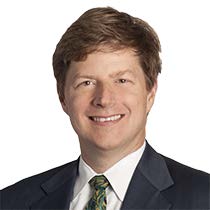
Michael Messinger
is co-founder of Shami Messinger. Mike helps companies of all sizes create intellectual property strategies for protection and to enhance their freedom-to-operate in the computer, electronics and sustainable technologies practice areas. He works with company officers and engineers to identify patentable inventions and build strategic patent portfolios for their company’s products and services. Mike helps companies navigate through inter partes review and reexamination. Mike received his JD degree from Georgetown University Law Center and a BS degree in Physics from Duke University. Mr. Messinger currently serves an adjunct professor of patent licensing at Georgetown Law.

Recent Articles by Michael Messinger
Since the Supreme Court’s Alice decision in 2014, inventors have faced extra hurdles trying to protect their software-related inventions with patents. A chief obstacle has been satisfying the two-part test for eligibility under Section 101 set forth in Alice and Mayo. To meet this test, claimed subject matter must not be directed to a judicial exception, such as an abstract idea, (Step One), and if it is, must add “significantly more” to provide an inventive concept (Step Two)…. Theodore Rand reported in IPWatchdog last week, a disturbing but not surprising trend. Rand found that, in 2020, 81% of software-related patents on appeal for subject matter eligibility in decided precedential cases (22 of 27) were found invalid. But in three cases, software-related patents were found drawn to eligible subject matter for patent purposes. Id. In each of the three cases, the appeals court pointed to aspects of the patent specifications themselves. Looking more closely at the representative claims and court’s comments with respect to the corresponding patent specification is illuminating. In particular, the court looked to the specifications for evidence of performance improvements over conventional systems, description of a technical problem/solution, and technological advantages.

![[IPWatchdog Logo]](https://ipwatchdog.com/wp-content/themes/IPWatchdog%20-%202023/assets/images/temp/logo-small@2x.png)